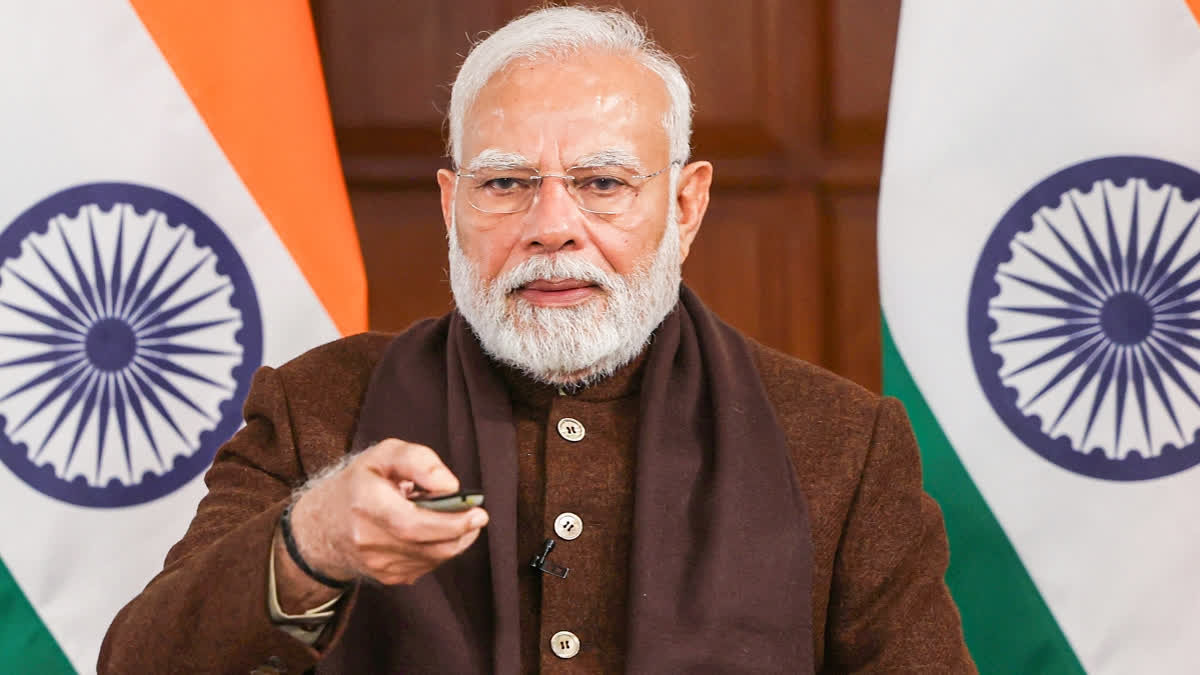New Delhi:Prime Minister Narendra Modi has said that he has never lived in a comfort zone and his risk-taking capacity has not been fully utilised yet. In a free-wheeling chat with Zerodha co-founder Nikhil Kamath, the Prime Minister said people are unsuccessful in life when they get used to comfort zone.
"It has been my luck that I have not spent life in a comfort zone, have never been there...since I was out of comfort zone, I knew what I had to do. Probably I am unfit for comfort...," he said during his podcast debut. "The kind of life I have lived, even small things give me satisfaction," he added.
Modi also said that people are unsuccessful in life when they get used to the comfort zone. "Even if a big industrialist doesn't take risk and doesn't come out of the comfort zone, the progress will finish there and he will have to come out. Someone who wants to progress in any area, should not get used to comfort zone, the risk-taking mentality is a driving force," he said.
Asked about whether his risk-taking abilities have increased with time, the Prime Minister said his risk-taking capacity has not been fully utilised yet. "...my risk-taking capacity is several times more...there is a reason behind it because I don't bother about myself and somebody who does not think about himself has countless risk taking capacity, my case is like that only," he said.
Modi also said he is willing to discard old ideas and embrace new ones as long as they fit into his essential ideology of "nation first". Modi said he sees his success in how he prepares a team who can deftly handle things, as he asserted that there are many young politicians with potential. He declined to name any, saying it will be injustice to many others.
When Kamath asked him if he has planned for the time beyond him, training those he has faith in, not for today but after 20-30 years, Modi said, "I can see people with a lot of potential. When I was in Gujarat, I would say that I want to go after preparing (team) for the next 20 years. I am doing it. My success lies in how I prepare my team who will be able to deftly handle things. This is my benchmark for me."
He said politics needs continuous entry of good people who put mission over ambition and summarised his ideology as "nation first". Asked if he sees such potential in any young politician, he said they are many of them. "They toil, they work with a mission. If I say a name it will be injustice to many others. There are a lot of names and faces in front of me. I know details of a lot of people but it is my responsibility to not do injustice to others," he added.
Modi said it has been his life's mantra that he may make mistakes but he will not do anything wrong out of bad intentions.
"When I became (Gujarat) chief minister I said I will not spare any effort to work hard. I will not do anything for myself. And, thirdly, I am human and I can make mistakes. But I will not do anything wrong out of bad intentions. I have made it a mantra of my life. Mistakes are inevitable. I must have made mistakes. I am a human too, not a god," the Prime Minister added.
Noting that one-third seats for MLAs and Lok Sabha members will be reserved for women in near future, he said women are already present in local bodies due to 50 per cent reservation for them in many states and asked them to work to become as capable as they can be to prepare themselves for assemblies and Parliament. The prime minister described himself as not a typical politician, and his time is mostly spent on governance.
"I have to make political speeches during elections. It is my compulsion. I don't like it but I have to do it. All my time is spent on governance outside elections. And when I was not in power, my time was entirely focussed on organisation. On development of human resources...," he said.
